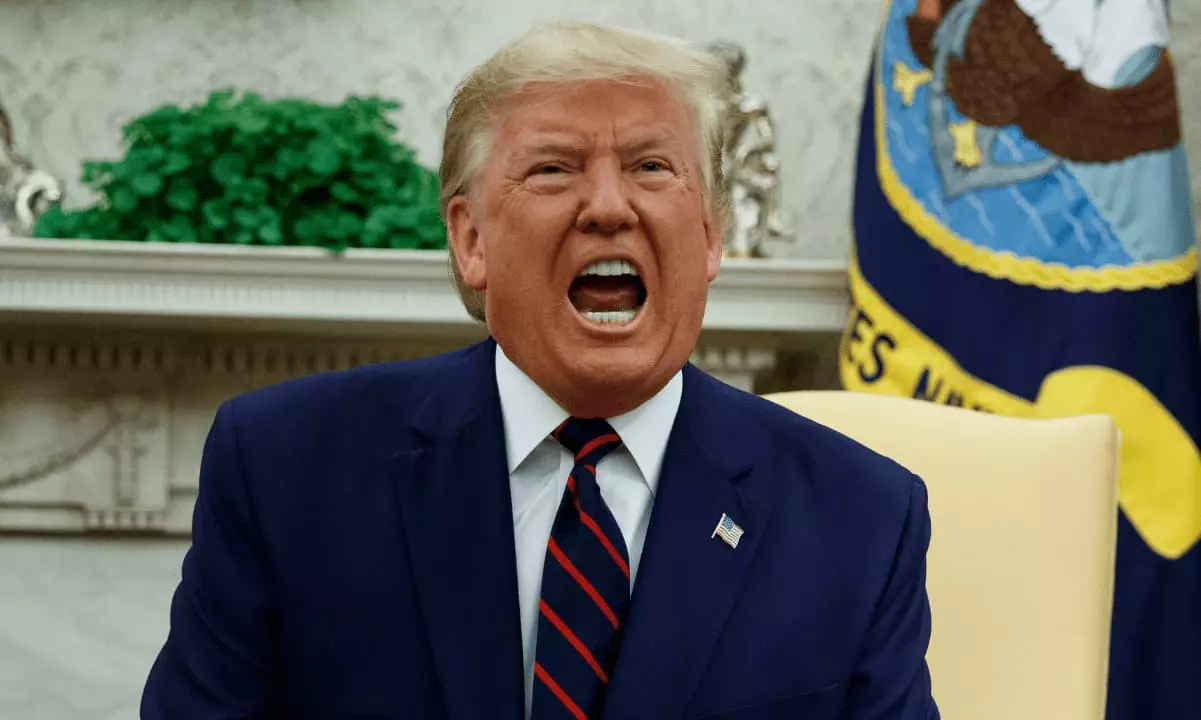In a rapid-fire political landscape, few incidents exemplify the intricate and often precarious nature of influence and connection quite like the fallout from President Donald Trump’s ill-fated endorsement of a “Crypto Strategic Reserve.” This unexpected move, powered by the lobbying engine of Brian Ballard, quickly unraveled and exposed the delicate balance of trust that exists within Trump’s circle. While one would typically expect a lobbyist’s association with the President to amplify their stature, in this case, it has instead revealed a volatile mix of ambition and betrayal.
The drama began when a staffer at Ballard’s firm pitched the idea to Trump at Mar-a-Lago, aiming to bolster the President’s public stance on the cryptocurrency market. The suggestion fell flat merely hours later as it was uncovered that Ballard’s firm had ties to Ripple, a cryptocurrency firm with vested interests in the proposed reserve. The ignorance of this relationship on Trump’s part speaks volumes about the disconnect and potential exploitation that can arise within political corridors where ambition often overshadows integrity.
Exposed Connections and Furor
Upon discovering the conflict of interest, Trump reportedly expressed his outrage in stark terms, labeling Ballard as “not welcome in anything anymore.” This reaction illustrates a deep-rooted fear that permeates Trump’s decision-making: the risk of being perceived as manipulated by those who are supposed to be loyal supporters. For Trump, being duped by a lobbyist—particularly in a matter as trending as cryptocurrency—was a line that could not be crossed without consequence.
What’s startling is how the fallout from this echo of betrayal has spiraled into a broader skepticism among Trump’s allies regarding the ‘influence peddling’ practices of lobbyists like Ballard. Allegations have arisen that Ballard, despite a booming clientele and an impressive revenue spike, is overstating his connections with the President. This situation unveils a sobering truth: while the allure of proximity to power may bring short-term gains, it can fatally undermine long-term relationships and credibility.
The Undercurrents of Political Lobbying
The essence of lobbying, especially in the echo-chambered world of Trumpian politics, hinges upon trust and authenticity. Truth Social’s misfire not only jeopardizes Ballard’s relations within the West Wing but also tangentially exposes a broader dilemma inherent in the lobbying industry—where perceived betrayal can easily tarnish reputations. The sentiment in Trump’s inner circle suggests that if there’s one lesson to be learned from this debacle, it’s that the game of influence is inherently dangerous. Trust is not merely a formality; it requires constant, vigilant maintenance in a political environment where alliances can shift like sand.
Ballard’s subsequent denial of reckless maneuvering speaks to the defensive posture many lobbyists take when challenged. He contends that his relationships with key players should not be manipulated for personal gain. However, the backlash indicates that trust, once fractured, can yield tangible consequences. The ripple effect of this incident may lead some of Ballard’s clients to seek alternative avenues for access, thereby highlighting the very real risks associated with such gambles.
Climbing Back Up the Influence Ladder
Despite these setbacks, Ballard’s ability to gain new clients highlights a peculiar dynamic in political lobbying—vulnerability can also breed opportunity. In the face of controversy, he has managed to draw in 130 new customers, enormously boosting his firm’s revenue. Yet, this newfound success raises questions about the longevity of his business model. How much of his influence is founded on real relationships versus inflated claims? It’s a dichotomy that continues to haunt many in the lobbying field.
What remains clear is that Ballard’s ascent after the Truth Social debacle is a testament to the adage that in politics, nothing is set in stone. The events surrounding the “Crypto Strategic Reserve” serve as both a cautionary tale and a perplexing case study on the fine line between influence and overreach. Political actors like Ballard must navigate the tumultuous waters of trust and ambition, mindful that a single misstep can send them spiraling out of favor, no matter how successful they may appear. In a system where reputational capital is paramount, conspiracy and influence must be managed with a deft hand, lest the tide turn unexpectedly against them.

